Blood of Recovered Coronavirus Patients Could Be Used for Protection from COVID–19 Infection
|
By HospiMedica International staff writers Posted on 20 Mar 2020 |
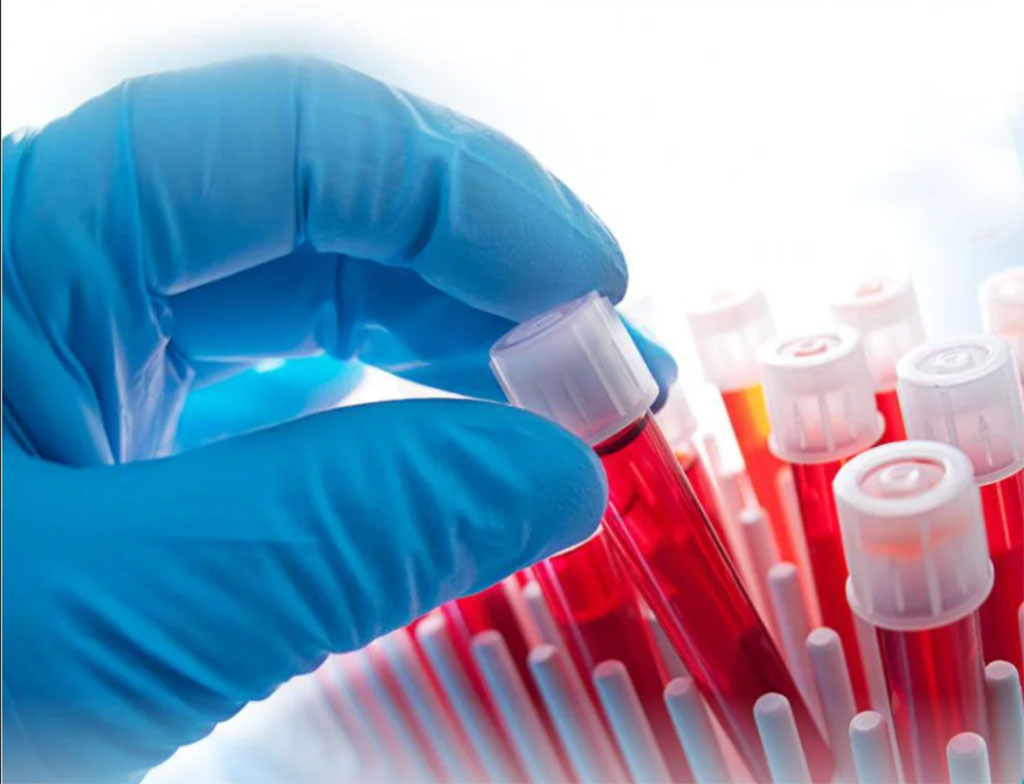
Illustration
Researchers from John Hopkins University (Baltimore, MD) have proposed that the use of blood from recovered coronavirus patients could provide short-term protection against COVID–19. The experts on infectious diseases have published a new paper which explains how viral antibodies present in the blood serum of patients who have recovered from the new coronavirus can be injected into other people in order to protect them for the short-term.
This medical remedy is called passive antibody therapy and was used to control measles, polio, mumps, and influenza outbreaks in the 20th century. The researchers from Johns Hopkins University have suggested that the medical remedy can now be used to control COVID–19 and make antibody therapies available quickly. In passive antibody therapy, coronavirus patients who have recovered would donate their blood after recovering from COVID–19 as well as while still convalescing from the disease. In this phase, the blood serum contains high amounts of natural antibodies that are produced to fight against the SARS-CoV–2 virus.
After the body produces such antibodies in response to pathogens, they can continue to circulate in the blood for months and years after an infection. These antibodies can be extracted and processed for injecting into other people for short-term benefits, especially in patients who are at a serious risk, an infected patient’s family members who are still uninfected, or boosting the immunity of medical workers who are the most highly exposed to the pathogen.
According to the researchers, modern blood banking techniques can be used to screen for other infectious agents possibly present in the blood, thus posing a low risk for healthy people, particularly considering the threats arising from COVID–19 for which there are no vaccines or drugs as of now.
The researchers have suggested convalescent sera can be used as an emergency response for protection against COVID–19, similar to the way it was trialled against other coronaviruses, such as SARS1 and MERS. The large scale of the COVID–19 pandemic in comparison to the earlier smaller outbreaks would ensure sufficient convalescent sera supplies due to the increased number of patients recovered from the coronavirus who can supply their blood.
Passive antibody therapy could help flatten the curve of the coronavirus pandemic while other treatments are being developed. There is little clarity over the amount of convalescent serum that would be required for effectively protecting people, although unconfirmed media reports from China have indicated that such a therapy has been delivering results in the region. The John Hopkins University has now begun funding efforts for setting up antibody therapy operations for COVID–19.
Related Links:
John Hopkins University
This medical remedy is called passive antibody therapy and was used to control measles, polio, mumps, and influenza outbreaks in the 20th century. The researchers from Johns Hopkins University have suggested that the medical remedy can now be used to control COVID–19 and make antibody therapies available quickly. In passive antibody therapy, coronavirus patients who have recovered would donate their blood after recovering from COVID–19 as well as while still convalescing from the disease. In this phase, the blood serum contains high amounts of natural antibodies that are produced to fight against the SARS-CoV–2 virus.
After the body produces such antibodies in response to pathogens, they can continue to circulate in the blood for months and years after an infection. These antibodies can be extracted and processed for injecting into other people for short-term benefits, especially in patients who are at a serious risk, an infected patient’s family members who are still uninfected, or boosting the immunity of medical workers who are the most highly exposed to the pathogen.
According to the researchers, modern blood banking techniques can be used to screen for other infectious agents possibly present in the blood, thus posing a low risk for healthy people, particularly considering the threats arising from COVID–19 for which there are no vaccines or drugs as of now.
The researchers have suggested convalescent sera can be used as an emergency response for protection against COVID–19, similar to the way it was trialled against other coronaviruses, such as SARS1 and MERS. The large scale of the COVID–19 pandemic in comparison to the earlier smaller outbreaks would ensure sufficient convalescent sera supplies due to the increased number of patients recovered from the coronavirus who can supply their blood.
Passive antibody therapy could help flatten the curve of the coronavirus pandemic while other treatments are being developed. There is little clarity over the amount of convalescent serum that would be required for effectively protecting people, although unconfirmed media reports from China have indicated that such a therapy has been delivering results in the region. The John Hopkins University has now begun funding efforts for setting up antibody therapy operations for COVID–19.
Related Links:
John Hopkins University
Latest COVID-19 News
- Low-Cost System Detects SARS-CoV-2 Virus in Hospital Air Using High-Tech Bubbles
- World's First Inhalable COVID-19 Vaccine Approved in China
- COVID-19 Vaccine Patch Fights SARS-CoV-2 Variants Better than Needles
- Blood Viscosity Testing Can Predict Risk of Death in Hospitalized COVID-19 Patients
- ‘Covid Computer’ Uses AI to Detect COVID-19 from Chest CT Scans
- MRI Lung-Imaging Technique Shows Cause of Long-COVID Symptoms
- Chest CT Scans of COVID-19 Patients Could Help Distinguish Between SARS-CoV-2 Variants
- Specialized MRI Detects Lung Abnormalities in Non-Hospitalized Long COVID Patients
- AI Algorithm Identifies Hospitalized Patients at Highest Risk of Dying From COVID-19
- Sweat Sensor Detects Key Biomarkers That Provide Early Warning of COVID-19 and Flu
- Study Assesses Impact of COVID-19 on Ventilation/Perfusion Scintigraphy
- CT Imaging Study Finds Vaccination Reduces Risk of COVID-19 Associated Pulmonary Embolism
- Third Day in Hospital a ‘Tipping Point’ in Severity of COVID-19 Pneumonia
- Longer Interval Between COVID-19 Vaccines Generates Up to Nine Times as Many Antibodies
- AI Model for Monitoring COVID-19 Predicts Mortality Within First 30 Days of Admission
- AI Predicts COVID Prognosis at Near-Expert Level Based Off CT Scans
Channels
Critical Care
view channel
CPR Guidelines Updated for Pediatric and Neonatal Emergency Care and Resuscitation
Cardiac arrest in infants and children remains a leading cause of pediatric emergencies, with more than 7,000 out-of-hospital and 20,000 in-hospital cardiac arrests occurring annually in the United States.... Read more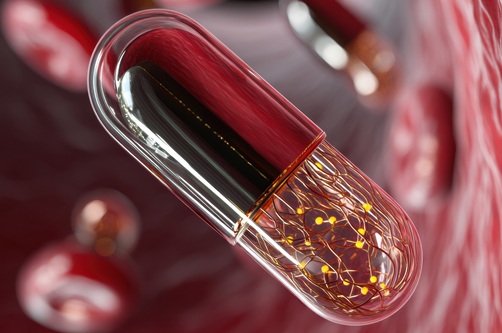
Ingestible Capsule Monitors Intestinal Inflammation
Acute mesenteric ischemia—a life-threatening condition caused by blocked blood flow to the intestines—remains difficult to diagnose early because its symptoms often mimic common digestive problems.... Read more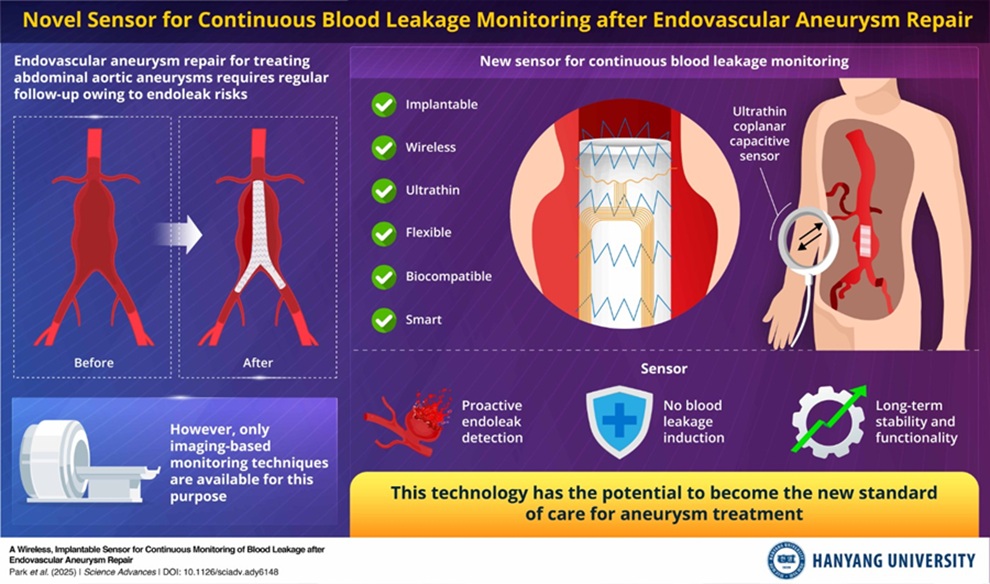
Wireless Implantable Sensor Enables Continuous Endoleak Monitoring
Endovascular aneurysm repair (EVAR) is a life-saving, minimally invasive treatment for abdominal aortic aneurysms—balloon-like bulges in the aorta that can rupture with fatal consequences.... Read more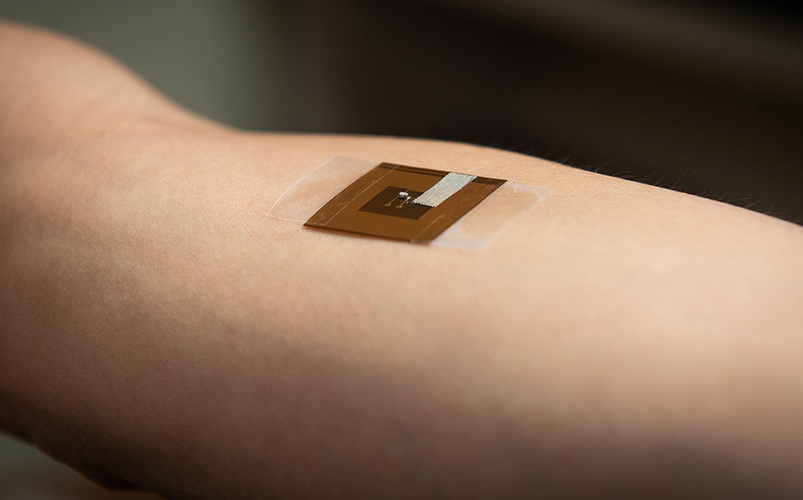
Wearable Patch for Early Skin Cancer Detection to Reduce Unnecessary Biopsies
Skin cancer remains one of the most dangerous and common cancers worldwide, with early detection crucial for improving survival rates. Traditional diagnostic methods—visual inspections, imaging, and biopsies—can... Read moreSurgical Techniques
view channel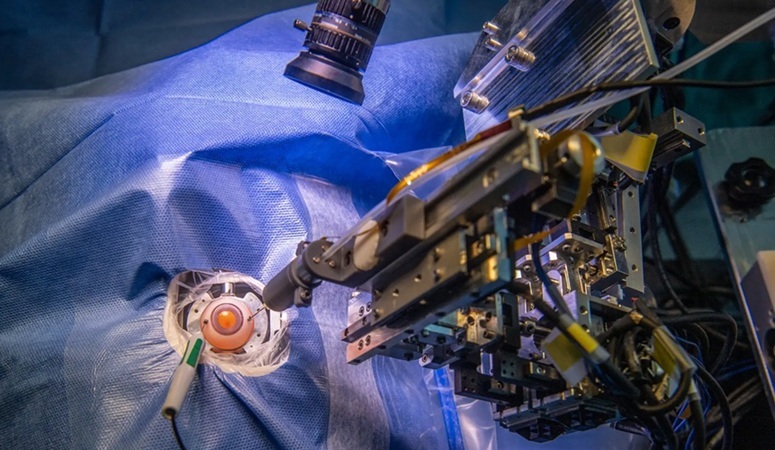
Robotic Assistant Delivers Ultra-Precision Injections with Rapid Setup Times
Age-related macular degeneration (AMD) is a leading cause of blindness worldwide, affecting nearly 200 million people, a figure expected to rise to 280 million by 2040. Current treatment involves doctors... Read more
Minimally Invasive Endoscopic Surgery Improves Severe Stroke Outcomes
Intracerebral hemorrhage, a type of stroke caused by bleeding deep within the brain, remains one of the most challenging neurological emergencies to treat. Accounting for about 15% of all strokes, it carries... Read morePatient Care
view channel
Revolutionary Automatic IV-Line Flushing Device to Enhance Infusion Care
More than 80% of in-hospital patients receive intravenous (IV) therapy. Every dose of IV medicine delivered in a small volume (<250 mL) infusion bag should be followed by subsequent flushing to ensure... Read more
VR Training Tool Combats Contamination of Portable Medical Equipment
Healthcare-associated infections (HAIs) impact one in every 31 patients, cause nearly 100,000 deaths each year, and cost USD 28.4 billion in direct medical expenses. Notably, up to 75% of these infections... Read more
Portable Biosensor Platform to Reduce Hospital-Acquired Infections
Approximately 4 million patients in the European Union acquire healthcare-associated infections (HAIs) or nosocomial infections each year, with around 37,000 deaths directly resulting from these infections,... Read moreFirst-Of-Its-Kind Portable Germicidal Light Technology Disinfects High-Touch Clinical Surfaces in Seconds
Reducing healthcare-acquired infections (HAIs) remains a pressing issue within global healthcare systems. In the United States alone, 1.7 million patients contract HAIs annually, leading to approximately... Read moreHealth IT
view channel
Printable Molecule-Selective Nanoparticles Enable Mass Production of Wearable Biosensors
The future of medicine is likely to focus on the personalization of healthcare—understanding exactly what an individual requires and delivering the appropriate combination of nutrients, metabolites, and... Read moreBusiness
view channel
Philips and Masimo Partner to Advance Patient Monitoring Measurement Technologies
Royal Philips (Amsterdam, Netherlands) and Masimo (Irvine, California, USA) have renewed their multi-year strategic collaboration, combining Philips’ expertise in patient monitoring with Masimo’s noninvasive... Read more
B. Braun Acquires Digital Microsurgery Company True Digital Surgery
The high-end microsurgery market in neurosurgery, spine, and ENT is undergoing a significant transformation. Traditional analog microscopes are giving way to digital exoscopes, which provide improved visualization,... Read more
CMEF 2025 to Promote Holistic and High-Quality Development of Medical and Health Industry
The 92nd China International Medical Equipment Fair (CMEF 2025) Autumn Exhibition is scheduled to be held from September 26 to 29 at the China Import and Export Fair Complex (Canton Fair Complex) in Guangzhou.... Read more















